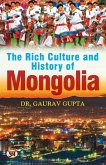Exploring the rich tapestry of Portugal's past is like embarking on an adventure through time, where every corner reveals stories of exploration, conquest, and cultural exchange. As someone who has always been fascinated by history, I find Portugal's legacy particularly captivating, especially considering its significant role in shaping global trade and cultural interactions during the Age of Discovery. Portugal's empire was one of the first to establish a global presence, and it all began with daring explorers like Vasco da Gama and Prince Henry the Navigator. I remember visiting the Maritime Museum in Lisbon, where I marveled at the intricately crafted models of ships that once sailed uncharted waters. The museum brought to life the spirit of adventure that defined the 15th and 16th centuries. It's incredible to think that these explorers ventured into the unknown, driven by a thirst for knowledge and wealth, often at great personal risk. One of the aspects I find most intriguing is the cultural exchange that occurred as a result of Portugal's maritime endeavors. The empire stretched from Brazil to parts of Africa and Asia, leaving behind a blend of cuisines, languages, and traditions. For instance, I once tried a dish called "feijoada" in a small Brazilian restaurant, which is a hearty stew that reflects the fusion of Portuguese and African culinary influences. It was a delicious reminder of how interconnected our world has become, largely due to the movements initiated by these early explorers. However, it's essential to acknowledge the darker sides of this history. The Portuguese Empire was not without its injustices, including the exploitation of indigenous populations and the transatlantic slave trade. I believe that understanding these complexities is crucial for a holistic view of history. It's a reminder that while we celebrate the achievements of the past, we must also reckon with the consequences of those actions. In recent years, there has been a growing interest in revisiting this history through various platforms, including documentaries and podcasts. I recently listened to a podcast series that delved into the impact of Portuguese colonization on contemporary societies, which sparked thoughtful discussions about identity and heritage. It's heartening to see people engaging with history in such dynamic ways, using modern tools to foster a deeper understanding of our collective past. As I continue to explore Portugal's legacy, I find myself drawn to its rich cultural offerings. From Fado music that evokes a sense of longing to the stunning azulejos that adorn buildings throughout the country, each element tells a story of its own. I once attended a Fado performance in a cozy tavern in Alfama, where the soulful singing resonated with the very essence of Portuguese history-its joys, sorrows, and resilience. In conclusion, the journey through Portugal's past is not just an exploration of an empire; it's a reflection on the intricate web of human experiences that shape our world today. As we engage with history, it's vital to embrace both its triumphs and its tribulations, allowing us to learn and grow from the legacy left behind. I encourage anyone interested in this topic to dive into the rich resources available, whether through travel, literature, or conversation, and to appreciate the depth of Portugal's influence on our shared global narrative
Hinweis: Dieser Artikel kann nur an eine deutsche Lieferadresse ausgeliefert werden.
Hinweis: Dieser Artikel kann nur an eine deutsche Lieferadresse ausgeliefert werden.



![Poor And Rich In The Old Testament With A Study Of Tsedaqah [in Hebrew Script] In The Bible And Rabbinical Literature Poor And Rich In The Old Testament With A Study Of Tsedaqah [in Hebrew Script] In The Bible And Rabbinical Literature](https://bilder.buecher.de/produkte/51/51521/51521678m.jpg)




